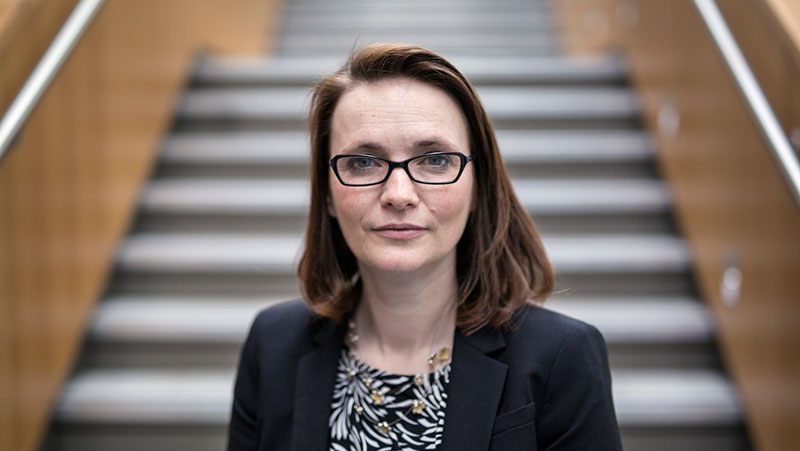
Humanists must be given the same right as religious representatives to sit on the local bodies responsible for overseeing religious education in schools, the Welsh Government has stated. The move follows on from a court challenge taken by Humanists UK last year against one local authority’s exclusive approach, and reverses over 20 years of government policy in Wales, which officially held that humanists did not have that right. Campaigners believe it will have implications for the identical bodies that exist in England, and for other jurisdictions across the UK.
In a letter to all local authority Directors of Education, the Welsh Government explained that its existing guidance, barring humanists from being full members of Standing Advisory Councils on Religious Education (SACREs), does not ‘comply with current legislation’, specifically ‘the Human Rights Act’. The letter follows a legal challenge taken by Humanists UK last year after the Vale of Glamorgan refused to admit a humanist representative, Kathy Riddick, to its SACRE on the grounds that only religious representatives, not non-religious representatives, are entitled to full membership.
The Vale of Glamorgan chose to withdraw its decision rather than defend it at the High Court, after Humanists UK was granted permission for judicial review. The Vale of Glamorgan instead committed to review its policy on humanist membership of SACREs, and to consult with the Welsh Government, among others, as part of that. The Welsh Government’s letter to the Vale of Glamorgan and all other Directors of Education reads:
‘It is the view of the Welsh Government that:
to ensure compatibility with the Human Rights Act 1998 the provisions relating to the constitution of SACREs and ASCs [Agreed Syllabus Conferences]… are to be interpreted as permitting the appointment of persons who represent holders of non-religious beliefs in the same way as they permit the appointment of persons who represent holders of religious beliefs’
Crucially, the letter serves to amend the existing guidance in Wales (Circular 10/94), which states that humanists cannot be members in the same way that religious representatives can:
‘For the avoidance of doubt, the guidance set out in this letter supersedes paragraph 103 of Circular 10/94.’
Education and human rights law is identical in this area in England as it is in Wales, so the legal reasoning of the Welsh Government should logically also apply to SACREs and ASCs in England.
Kathy Riddick, the humanist representative who was refused membership of the SACRE, who is also the Coordinator of Wales Humanists, said, ‘I’m delighted that the Welsh Government has moved to condemn and bring an end to discrimination against humanists like me. All I ever set out to do is work alongside religious representatives in contributing to the improvement of RE in my local area. To be barred from doing that because I am non-religious was simply wrong, and I look forward to seeing all councils in Wales adopting a more inclusive approach in line with the Welsh Government’s letter.’
Andrew Copson, Chief Executive of Humanists UK, commented, ‘Humanists UK and Wales Humanists have always advocated for and supported balanced and inclusive education about religious and humanist beliefs. For far too long we have been prevented from doing that as fully as our religious colleagues, but the Welsh Government’s new guidance means that must now change. Children are best served by people of all religions and beliefs working together to improve their education, and I hope councils throughout both Wales and England and other authorities across the UK will now allow that to happen.’
Solicitor Louise Whitfield of Deighton Pierce Glynn added, ‘I am very pleased indeed that the Welsh Government now recognises the correct legal position which will ensure that humanists are treated equally in this important context and their human rights respected.’
Notes
For further comment or information please contact Humanists UK Education Campaigns Manager Jay Harman on jay@humanists.uk or 0207 324 3078.
Read the Welsh Government’s letter to all local authority Directors of Education: https://humanists.uk/wp-content/uploads/KW_0783_18-en.pdf
Kathy Riddick and Humanists UK were represented in the Vale of Glamorgan case by solicitor Louise Whitfield of Deighton Pierce Glynn and barrister David Wolfe QC of Matrix Chambers.
Read Humanists UK’s previous news item ‘Council backs down in High Court challenge to exclusion of humanists from local RE body’: https://humanists.uk/2017/10/06/council-backs-down-in-high-court-challenge-to-exclusion-of-humanists-from-local-re-body/
Read Humanists UK’s news item ‘Humanist parent in High Court challenge to exclusion from local religious education body’: https://humanists.uk/2017/07/19/humanist-parent-in-high-court-challenge-to-exclusion-from-local-religious-education-body/
Read more about SACREs: https://humanists.uk/education/sacres-and-ascs/about-standing-advisory-councils-for-re-sacres/
Read more about Humanists UK’s work on Religious Education: https://humanists.uk/campaigns/schools-and-education/school-curriculum/religious-education/
At Humanists UK, we advance free thinking and promote humanism to create a tolerant society where rational thinking and kindness prevail. Our work brings non-religious people together to develop their own views, helping people be happier and more fulfilled in the one life we have. Through our ceremonies, education services, and community and campaigning work, we strive to create a fair and equal society for all.
Humanists UK recently changed its name from the British Humanist Association: https://humanists.uk/2017/05/22/bha-becomes-humanists-uk/
